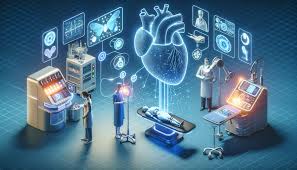By Atoyebi Nike
Healthcare systems worldwide are facing a sharp rise in cyberattacks powered by artificial intelligence (AI), with Nigeria’s private healthcare sector emerging as one of the hardest hit in Africa, according to new research released ahead of World Patient Safety Day 2025.
Check Point Software Technologies Ltd. (NASDAQ: CHKP), a global cybersecurity firm, disclosed that Nigerian healthcare organisations faced an average of 4,388 cyberattacks per week in 2025- a 47% jump compared to last year. Angola topped the list at 4,727 weekly attacks (+32%), followed by Kenya (4,004, +14%), while South Africa recorded the sharpest rise at 69%.
Kingsley Oseghale, Country Manager for West Africa at Check Point, warned that the attacks now go beyond data theft. “Healthcare in Nigeria is under increasing pressure from sophisticated cyber threats. These attacks no longer simply steal data; they disrupt surgeries, force emergency diversions, and alter patient treatment plans, putting lives at risk,” he said.
Globally, healthcare is among the three most targeted sectors, with organisations enduring an average of 2,465 weekly cyberattacks between January and August 2025, up 17% from the previous year. Experts blame rapid digitisation, reliance on legacy systems, and shortages of cybersecurity staff for creating what Oseghale described as “a perfect storm.”
AI is amplifying both sides of the battle. Criminals deploy it for phishing scams, deepfakes, and advanced malware, while hospitals are adopting AI-powered defences for real-time monitoring and early detection. IBM research shows these systems are already reducing the financial toll of data breaches.
The risks extend to connected devices such as infusion pumps and smart monitors, which expand attack surfaces and heighten the danger of direct patient harm. Medical identity theft has also grown, eroding trust and burdening providers with costly remediation.
Experts recommend that cybersecurity be embedded into the core of healthcare delivery. Strategies include staff training, zero-trust policies, asset visibility, and consolidated AI-powered protection platforms. “Cybersecurity in healthcare is no longer just about protecting data; it’s about protecting lives,” Oseghale stressed.
The warning comes as the World Health Organisation marks World Patient Safety Day 2025 under the theme “Safe care for every newborn and every child.” WHO is calling for urgent action to eliminate preventable harm, particularly in pediatric and newborn care, while stressing that digital safety must now be part of that mission.
For Nigeria and other African nations digitising their healthcare systems, the rise in AI-driven cyberattacks is a stark reminder: without robust cyber defences, the promise of digital health innovation could be overshadowed by preventable harm.


